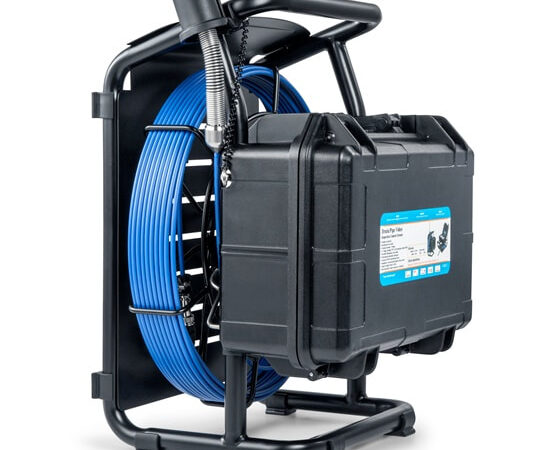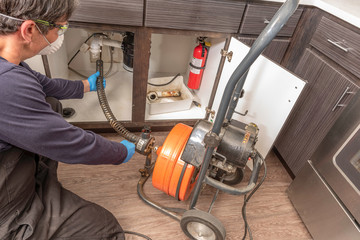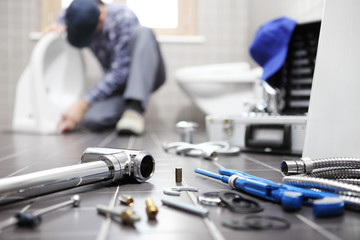How to Become a Plumber
A plumber is a person who works with water systems. He installs and maintains drainage and sewage systems. A plumber may also be called on to install potable water systems. Salary ranges vary, and the job requires a certain amount of education. To learn more about becoming one, read on the tips from Plumber Springdale AR! This article will discuss the educational requirements to become a plumber.
Work Environment
The work environment for plumbers can be challenging. The profession is highly physical, and plumbers often work in small spaces with little or no light. They also must lift heavy equipment and tools. Still, the job can have its benefits. As a plumber, you can expect to be challenged physically, but you can also look forward to a rewarding career.
Plumbers are exposed to hazardous materials and airborne contaminants. They must use protective gear to prevent injury. Their work may also require them to lift heavy objects, which can be dangerous. This is why it’s crucial that plumbers understand safety before beginning a job. A plumber’s workplace should have a comprehensive safety program and a safety program for new employees.
Whether a plumber is self-employed or employed, the work environment for plumbers depends on their skill level. Some plumbers work as independent contractors, setting their own schedules and traveling to different job sites. Their typical work environment is an indoor space, although some plumbers are forced to work outdoors during extreme weather conditions or periods of high water pressure. Other plumbers specialize in fixing appliances and sanitation systems. Still others design and plan plumbing layouts and read blueprints.
Physical Demands
Plumbers have a broad range of physical requirements. They must be flexible and able to work in cramped spaces. Their eyesight must be excellent, as they will be using small equipment and working in dark places. Plumbers must also be strong and have the ability to manipulate objects with their hands.
Physical demands of plumbers can be stressful and difficult, especially if the plumber is an older worker. They may also be required to work late or on weekends. Plumbers often face a lot of physical dangers while working, such as asbestos or raw sewage. They must also adhere to regulations and rules that govern the industry. Physical demands of plumbers vary from state to state, but they can be fairly demanding. A typical plumber earns about $40-80k a year, depending on their location.
The physical demands of plumbing jobs can be stressful, and difficult, but they are rewarding and highly-skilled. A plumber has to be level-headed and able to solve problems under pressure. Whether they are working for a company or working on their own, they must complete tasks efficiently and meet deadlines. They also must remain calm during emergencies.
Salary Range
Salary ranges for plumbers vary greatly, and it’s worth researching the average salaries in your area before starting your search. The 50th percentile salary for entry-level plumbers is $46,400, while senior plumbers earn $60,700. In addition to regional differences, plumber salaries can be affected by the cost of living.
If you are just starting out, a high school diploma is the minimum educational requirement for becoming a plumber. A trade school degree is also a prerequisite for many jobs in this field. If you have the right training and experience, you can expect to earn at least $50,000 per year. However, if you want to earn a higher salary, you should consider pursuing additional training or an advanced degree. You can also earn more by gaining management experience.
An entry-level plumber can earn between $36,000 and $46,590 annually, depending on location and the type of job they are doing. This is considerably less than what an experienced plumber makes, but there is no reason to disregard the opportunity as an apprenticeship. An apprenticeship will enable you to gain the knowledge necessary to become a journeyman plumber and earn more money.
Education Required to Become a Plumber
To become a plumber, you need to complete an apprenticeship program. An apprentice can expect to work for four to five years. After completing the apprenticeship, you can begin working as a journeyman, earning between 45 and 50 percent of the minimum regulated wage. Once you become a journeyman, you will be supervised by a senior tradesperson, who can provide you with guidance and training.
In addition to the trade school, you must have a high school diploma and a basic understanding of mathematics. In addition, you must be physically healthy, especially when it comes to your knees, back, and shoulders. Once you’ve mastered these skills, you’ll be well-prepared to start your plumbing apprenticeship.
In addition to training, plumbers should have a license. Plumbing licenses must be obtained through the Department of Buildings. Other jurisdictions have slightly different requirements for licensing plumbers. Some municipalities require plumbers to attend continuing education to maintain their licenses. In some states, master plumbers are required to take seven hours of approved continuing education. However, many smaller cities don’t have such requirements.





